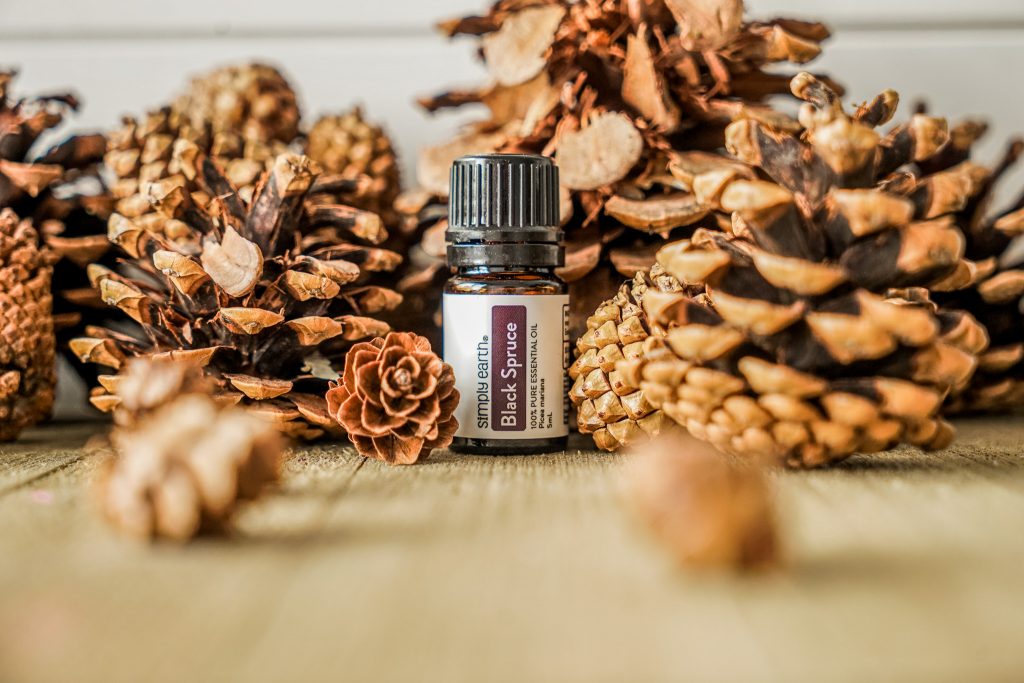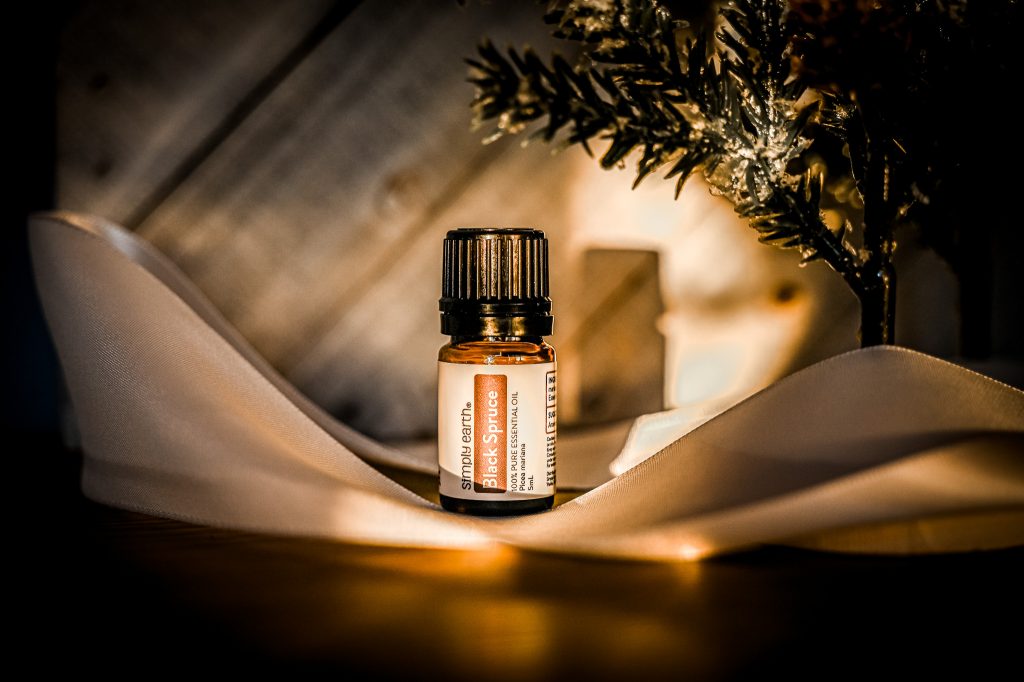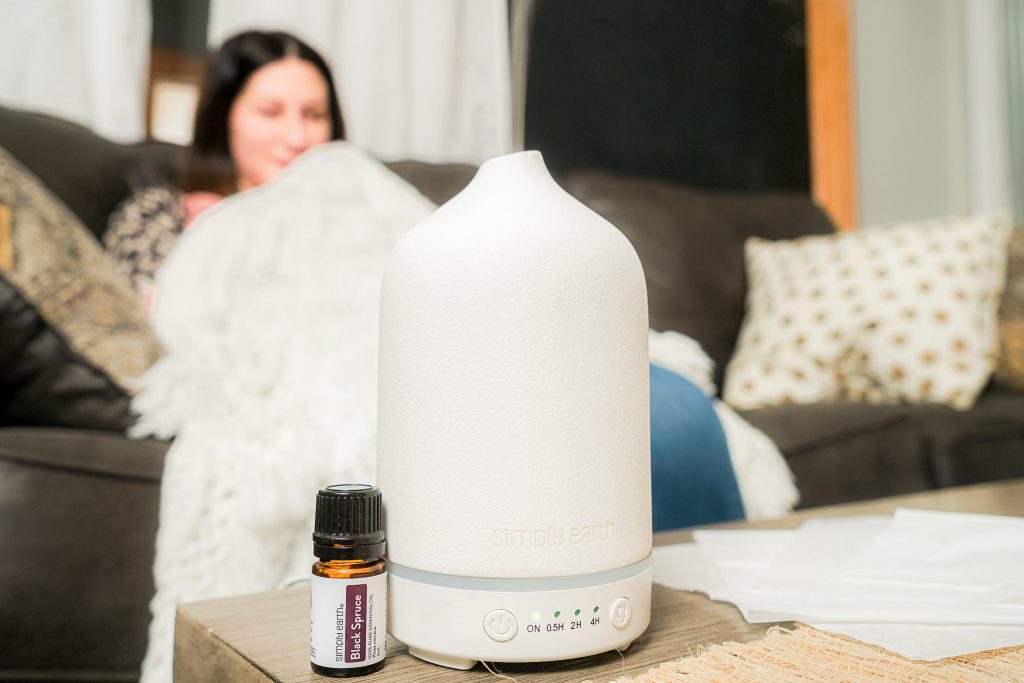If you’re looking for a potent essential oil that packs a punch, look no further than Black Spruce Essential Oil. This oil is extracted from the needles and twigs of the black spruce tree and has been prized for its many health benefits for centuries.
Whether you’re looking to boost your mood, soothe sore muscles, or support your respiratory health, Black Spruce Essential Oil may be just what you need. Plus, there are countless ways to incorporate it into your daily routine, from diffusing it in your home to making your own DIY skincare products.
So, why not give Black Spruce Essential Oil a try?
Extracting Black Spruce Oil
Black Spruce Essential Oil is obtained through the steam distillation of fresh twigs and needles from the black spruce tree or Picea mariana. The extraction process is simple yet effective, retaining all the plant’s beneficial properties in the resulting oil.
Black Spruce Essential Oil Benefits
Calms
Black Spruce Essential Oil is a powerhouse for calming and soothing properties. A clinical guide to essential oils1 recommends it for mental fatigue and burnout and those who suffer from low motivation, stamina, and vitality.
Supports Respiration
If you’re looking for a natural way to support your respiratory system, Black Spruce Essential Oil might be just what you need.
According to the Encyclopedia of Essential Oils2, this oil is known for its ability to help with colds, flu, and respiratory weakness. But it’s not just about treating these conditions – Black Spruce Essential Oil can also help prevent them from occurring in the first place by supporting the overall health of your respiratory system.
Soothes Respiration
Black Spruce Essential Oil is one of nature’s most potent remedies for respiratory issues. The oil has been shown to have excellent benefits in soothing the respiratory system and providing comfort and wellness. According to the Encyclopedia of Essential Oils2, Black Spruce Oil effectively treats asthma, bronchitis, and cough symptoms. It contains essential compounds that work together to alleviate respiratory problems, making it an excellent natural solution for those who want to breathe easier.
Cleanses Skin
Black Spruce Essential Oil is a natural wonder when it comes to skincare. In fact, a study3 has shown that the essential oil extracted from P. abies can effectively combat a range of gram-positive bacteria and fungi, making it an excellent choice for those looking for a natural and effective solution for their skin-cleansing needs.
Supports Joint Function
With its proven ability to help perform day-to-day tasks easily, it’s no wonder this oil has become a popular choice among those seeking ease from joint discomfort. According to the Encyclopedia of Essential Oils2, Black Spruce Oil is highly recommended for those suffering from rheumatism.
Soothes Muscles
Black Spruce Essential Oil can also soothe and relax tight muscles. The Encyclopedia of Essential Oils2 even recommends using Black Spruce Oil to ease muscular aches, pain, and poor circulation. Whether you’re an athlete pushing your limits or simply dealing with the aches and pains of everyday life, Black Spruce Essential Oil could be just the support you need to feel your best!
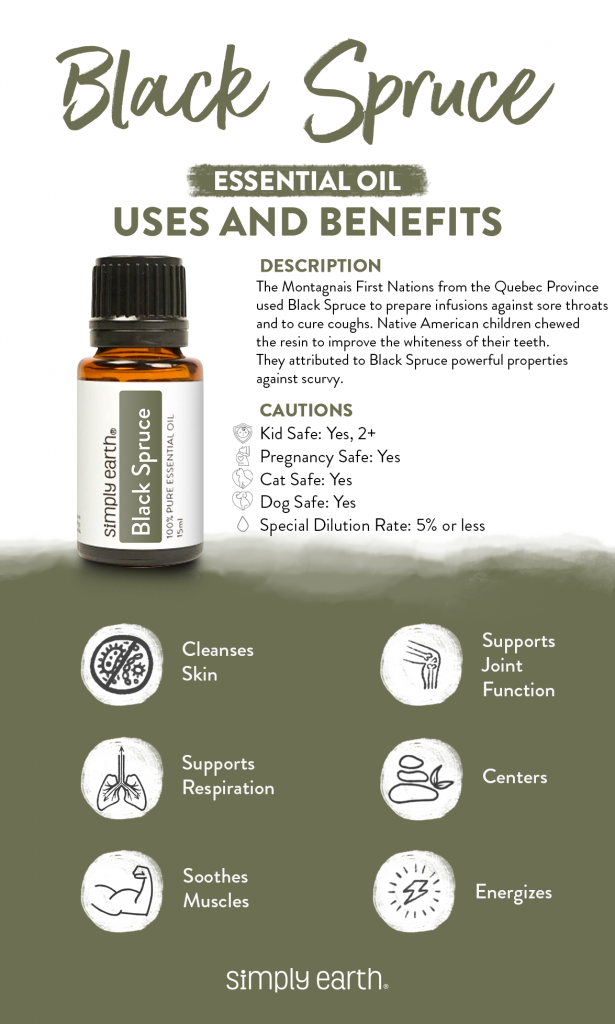
Black Spruce Oil Blends Well With
Black Spruce Essential Oil smells like a fresh conifer with an almost icy soft resin. It is slightly spicy with hints of citrus. This balsamic, fruity, green, woody medium note blends well with Pine and Wintergreen Essential Oils.
What’s the Science Behind This Oil?
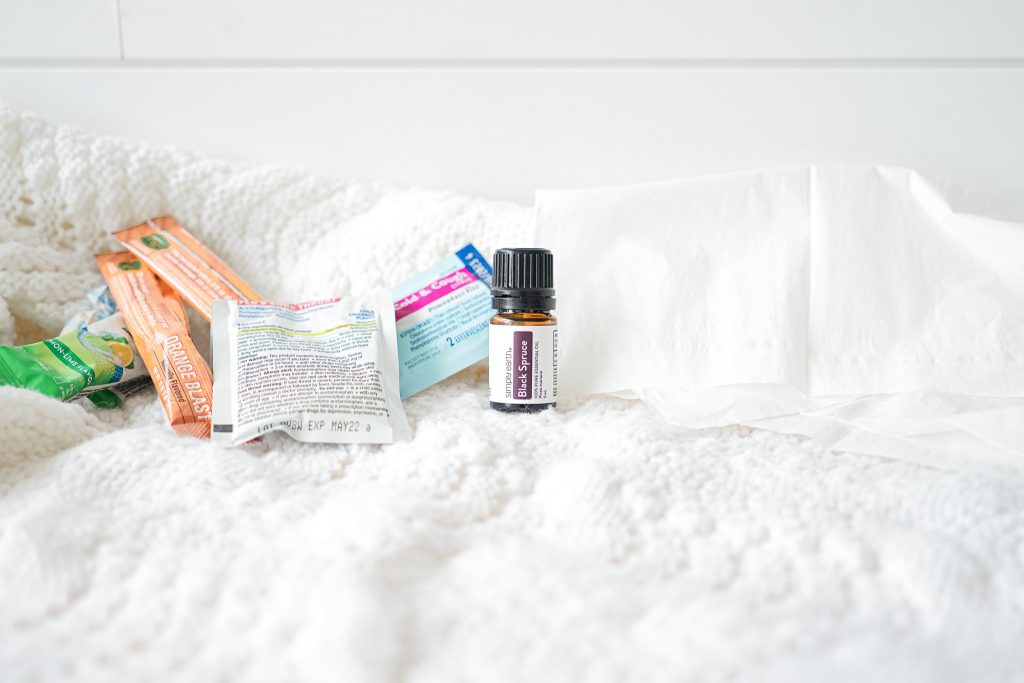
History of Black Spruce Essential Oil
Native people have used medicinal plants from the boreal forest for thousands of years for healing. This knowledge is generally held as a form of oral tradition. Cree from the woodlands used Black Spruce as an anti-diarrheal medication by making infusions from the cones. At other times, needles and cones were used to treat diabetes. They made balms from Black Spruce resin for burns and chewed on cones to relieve toothache.
The Montagnais First Nations from the Quebec Province used Black Spruce to prepare infusions against sore throats and to cure coughs. Native American children chewed the resin to improve the whiteness of their teeth. They attributed this to Black Spruce’s powerful properties against scurvy.
Chemical Constituents
Bornyl Acetate
Bornyl acetate is a chemical compound used as a food additive, flavoring, and odor agent. It is a component of the essential oil from pine needles and is primarily responsible for its scent.
Camphene
Camphene is an organic compound which is colorless and has a pungent smell. It is a minor constituent of many essential oils, is used in the preparation of fragrances, and as a food additive for flavoring.
α-Pinene
α-Pinene is an organic compound found in the oils of many species of coniferous trees, notably the pine tree. It is an anti-inflammatory and is likely antimicrobial. It is also known to aid memory and increase alertness.
Things to Remember When Using This Oil

Always dilute an essential oil when using it on the skin. This essential oil is unlikely to cause skin irritation when diluted properly. If the oil has been oxidized (left with the cap off for long periods of time) it is more likely to cause skin irritation. Check out this dilution chart for diluting this essential oil properly.

When using essential oils around pregnant women, caution should be taken. Consult your doctor.

When using essential oils around children, caution should be taken.

This essential oil is generally safe to diffuse and use topically on cats. For more information on using essential oils with cats, check out this blog post.

For more information on using essential oils with dogs, check out this blog post.
We don’t recommend ingesting essential oils unless under the direction of a doctor certified in aromatherapy. For more information on why we don’t ingest essential oils check out this blog post.
Please note: This post is a compilation of suggestions made by those that have extensively used essential oils and has not been verified scientifically with clinical tests nor reviewed by medical experts. It is anecdotal information and should be treated as such. For serious medical concerns, please consult your doctor. The statements given in this blog post have not been verified by the FDA
References:
- Holmes P. Aromatica: a clinical guide to essential oil therapeutics –Vol. I. 2016.
- Lawless J. The encyclopaedia of essential oils. 1992.
- Radulescu V, Saviuc C, et al. Chemical composition and antimicrobial activity of essential oil from shoots spruce (Picea abies L). 2011 Jan


